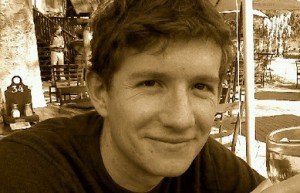Anyone can be tempted to abuse another if they have power over that person. That makes the Manana case an important test.
Here we are in the middle of Women’s Month and it seems as if the stories of women being beaten, killed or otherwise mistreated by men are multiplying in response.
Mduduzi Manana, quite literally, kicked it off, but we must acknowledge that the abuse of women is an almost sociocultural phenomenon in this country. It’s almost impossible to pick up the Sunday papers on any given Sunday and not find at least one or two stories of some or other celebrity embroiled in yet another domestic abuse scandal.
But it’s certainly not only the rich and famous who contribute to the malaise. Speak to any officer on patrol and they’ll tell you that most of their callouts are not to fight cash-in-transit robbers, ATM bombers or – as the last Avengers movie would have you believe – the Incredible Hulk in the streets of downtown Joburg. No. Policemen and women often spend most of their time mediating in domestic abuse cases. Many cops say this is so ubiquitous they feel they should be accredited as honorary social workers.
Before we say the problem is exclusively limited to men beating up women, the recent case of Zimbabwe’s First Lady, Grace Mugabe, was a timely reminder of one of the biggest causes of the problem: power, and the belief that having power gives you rights over the bodies and the lives of others. I know the case against Mugabe has not been proven in court, but I have no doubt it happened as the young model claims, because Grace has a history of assaulting people. She is drunk on her own power, and I remember years ago reading about how she apparently deployed attack helicopters on informal miners in Marange because they were “stealing” “her diamonds”.
This is not the kind of person who thinks she can be limited by pesky things like “laws”. She believes only in the right and the might of power. Only a strong state guided by a blindfolded Lady Justice that enforces laws equitably can counter this kind of dangerous megalomania.
As much as we, as a society, roll out our messages against women abuse every year and have been fed the line that “real men” don’t hurt women, little will change until the balance of power – and how punishment of how power is abused – changes.
For women, in this deeply patriarchal South Africa, however, that’s likely to take a very long time.
So if waiting to transform the standing of women in this country isn’t happening fast enough, then the most likely option that remains to deter abusers from taking advantage of whatever small edge of power they have over someone else is to invoke the levelling power of the state.
Despite what you may see on TV and in the movies, the best way to get a bully to stop bullying a smaller kid is not to encourage that little person to stand up to the bigger person. Such a misguided strategy is likely to only get the smaller kid beaten to an even bigger pulp, or to the bully being even more badly hurt or killed, because the smaller person is probably going to turn to a dangerous weapon to level the playing field. This will just result in an arms race and the level of violence will just continue to grow.
The most reliable way of fighting bullying is for a bigger authority to notice it and punish the bully without fear or favour. There can also be a programme to intervene and counsel, educate or otherwise change the behaviour of the bully, but something must happen.
The bully will stop, not because he or she wants to or because they think it’s the morally right thing to do. They’ll just be deterred from continuing with their crimes – and so will other bullies when they see what happened to the first bully or if the first bully is reformed.
That’s why men who abuse women need to face the law as fully and as strongly as possible. That’s why the Manana case represents a fine opportunity to broadcast society’s disapproval of abuse of power – and the abuse of women that comes with it.
Let’s not fool ourselves that only “bad men” hit women or that if you hit a woman then you are automatically a bad man.
No less a global luminary than Nelson Mandela himself was once accused by his first wife of beating her and even threatening her with an axe. The charges were never tested in court, and the younger pre-prison Mandela denied it in court papers. However, he later apparently admitted to friends that he had indeed been involved in some sort of physical encounter with Evelyn Mase and the scene of him striking Evelyn to the ground over a fight with a poker even made it into the blockbuster movie about his life, Mandela: Long Walk to Freedom.
Anyone can be an abuser, but they can also do better – whether of their own choice, or simply because they are forced to, or are otherwise “encouraged”.
The Manana case is an ideal opportunity for the South African state to stand up for “the little guy”, which just so happens in the Manana case to be two women beaten up by a powerful state official and his friends.
In doing so, South Africa will be standing up just a little bit for all of us who feel so mightily abused in so many different ways by the powers who oppress in so many different ways every day.
However, I’m not holding my breath.

Charles Cilliers, Citizen.co.za digital editor






